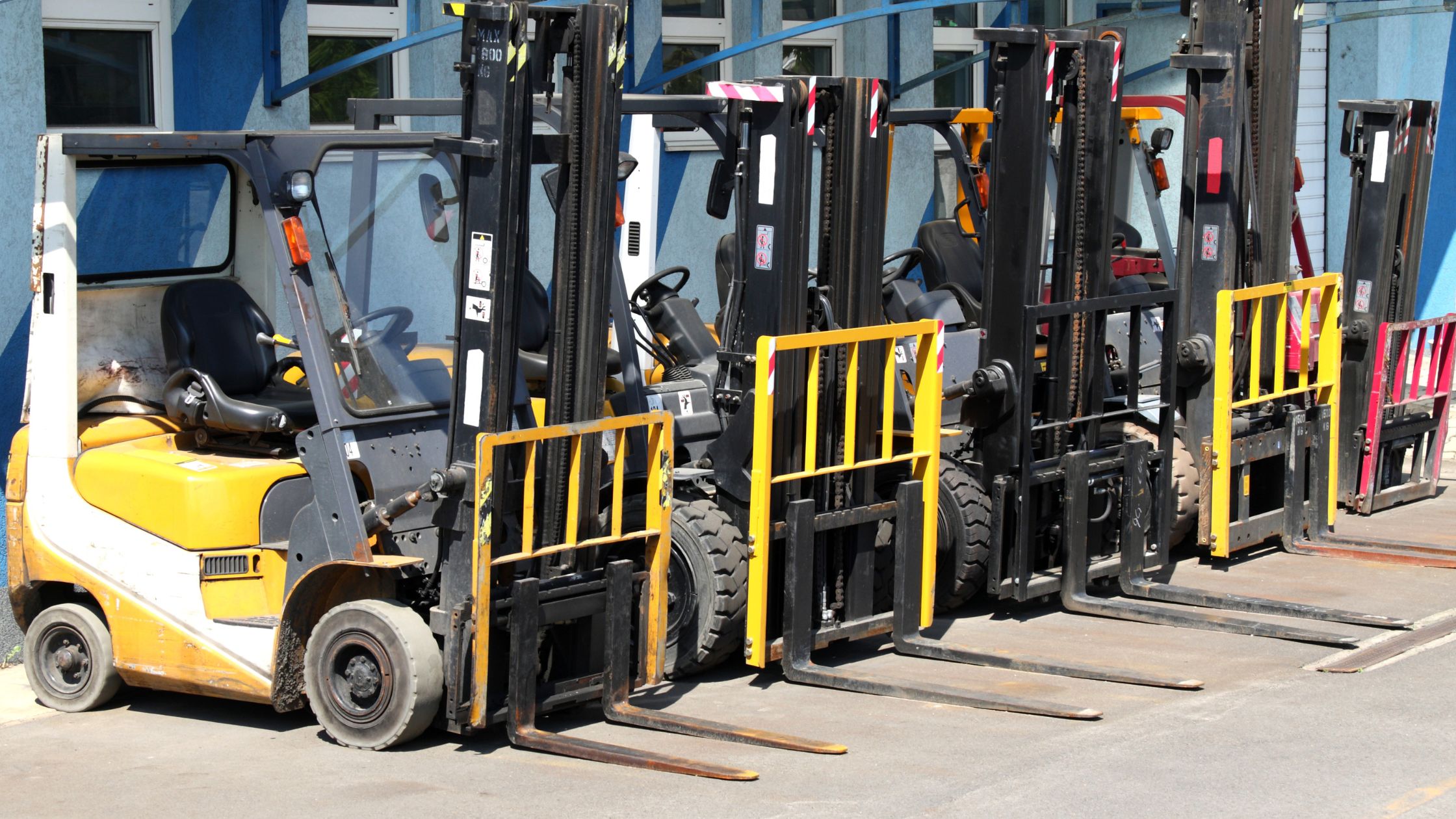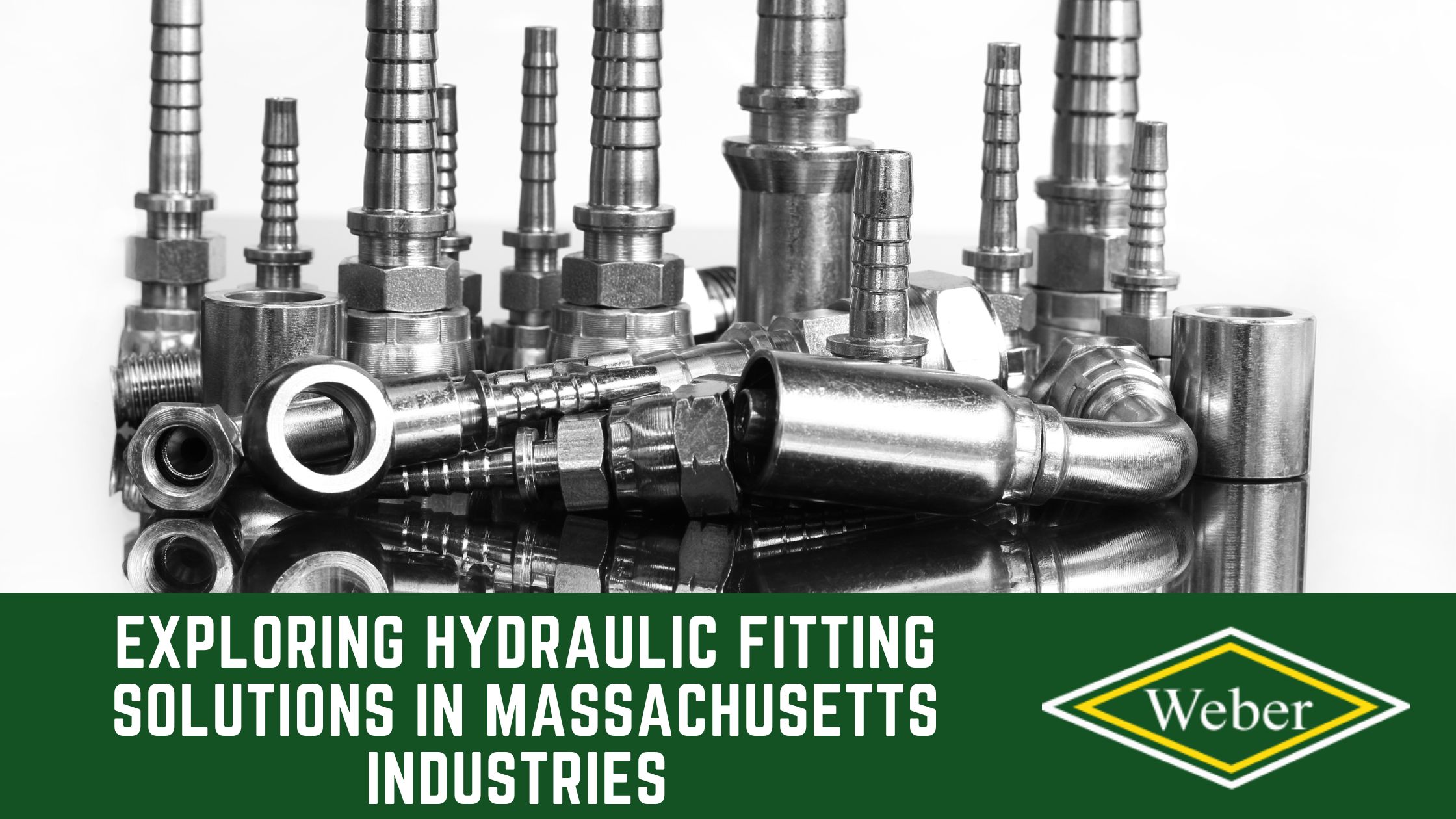In Massachusetts, hydraulic fittings are a cornerstone in various industrial applications, providing the necessary connections in hydraulic systems. This article explores the different uses of hydraulic fittings in several key industries within the state.
Key Takeaways
- Versatility: Hydraulic fittings are essential in Massachusetts industries, used in a wide range of machinery and systems.
- Customization: Tailored hydraulic hose fittings and adapters are designed to meet unique industrial requirements.
- Reliability: High-quality fittings are needed for maintaining system efficiency and safety, especially in demanding environments.
What Industries Use Hydraulic Fittings in Massachusetts?
In Massachusetts, hydraulic fittings are used across numerous industries, seamlessly integrating into systems from manufacturing to heavy construction. Let’s look at 4 industries that use and need hydraulic fittings!
Construction and Heavy Equipment
In the construction and heavy equipment sector in Massachusetts, hydraulic systems are the driving force behind the power and efficiency of various machinery. These systems, comprising pumps, cylinders, and motors, are reliant on hydraulic fittings for their functionality and durability
Road Construction Machinery
In road construction, machinery like pavers, rollers, and graders depend heavily on hydraulics for operation. Hydraulic fittings in these machines are responsible for providing the precise control needed for laying and smoothing road surfaces. They must be able to operate effectively under constant stress and in various environmental conditions, from extreme heat to cold.
Demolition Equipment
Hydraulic systems in demolition equipment, like hydraulic breakers and demolition robots, rely on fittings to deliver the high-power force needed to break through concrete and other tough materials. These fittings must handle extremely high pressures and abrupt force changes, ensuring that these powerful tools perform consistently and safely.
Tunneling and Drilling Equipment
In tunneling and drilling operations, hydraulic systems are used for boring through rock and earth. Fittings in these applications need to be specially designed to handle the high pressures and harsh conditions underground, including moisture, dust, and varying temperatures. They ensure that drills and boring machines can operate efficiently in these challenging environments.
Agriculture
In the agriculture industry in Massachusetts, hydraulic systems are key to the efficiency and productivity of various farming operations. From tractors to harvesting equipment, these systems rely on durable and reliable hydraulic fittings to function optimally.
Tractors and Farm Equipment
Tractors use hydraulic systems for tasks, including plowing, tilling, and seeding. Hydraulic fittings in these tractors connect to implements like plows and seeders, facilitating attachment and operation. These fittings must withstand the pressure and flow required to operate these implements, often in rough and uneven terrain. Durability is vital as these fittings are exposed to dirt, moisture, and varying weather conditions.

Harvesting Equipment
In harvesting machinery, such as combines and foragers, hydraulic systems play a big role. Hydraulic fittings are used to operate components like cutting heads, conveyors, and lifting mechanisms. They need to be robust and reliable to handle the long hours and intense workload during the harvesting season. Failure of these fittings can lead to significant downtime and potential crop loss.
Irrigation Systems
Hydraulic systems are also integral to modern irrigation equipment. Fittings in these systems connect hoses and pipes that distribute water across fields. They must be leak-proof to ensure efficient water use and to prevent water loss. Quality fittings contribute to the effectiveness of irrigation systems, directly impacting crop yield and resource management.
Specialty Agriculture Equipment
In specialty agriculture, such as vineyards and orchards, hydraulic systems are used in equipment like sprayers and pruning machines. The fittings in these systems need to be precisely engineered for the specific demands of these applications, providing the right flow and pressure for optimal operation. They must also be resistant to chemicals and fertilizers commonly used in these environments.
Livestock and Dairy Farm Equipment
In livestock and dairy operations, hydraulic systems are used in feeding, milking, and waste management equipment. The hydraulic fittings in these applications must be safe for use around animals and capable of handling the specific demands of livestock management. They also need to be easy to maintain and clean, ensuring hygiene and operational efficiency.
Material Handling
In Massachusetts, the material handling industry is pivotal in logistics, warehousing, and distribution. This sector relies heavily on hydraulic systems for the efficient and safe movement of goods and materials. Hydraulic fittings play a key role in these systems, found in forklifts, conveyor belts, pallet jacks, and automated storage and retrieval systems (AS/RS).

Forklifts
Forklifts are a staple in warehouses and distribution centers. They use hydraulic systems for lifting and moving heavy loads. The hydraulic fittings in these forklifts must be robust and reliable, as they handle high-pressure and heavy loads daily. These fittings are essential for the smooth operation of the lifting mechanism, ensuring that goods can be moved safely and efficiently.
Conveyor Belts
Conveyor belt systems use hydraulics for precise control of belt movement, vital for transporting goods through a facility. Hydraulic fittings in these systems must be durable to withstand continuous movement and varying loads. Properly functioning fittings ensure that the conveyor systems operate smoothly, minimizing downtime and maintaining productivity.
Pallet Jacks
Hydraulic pallet jacks, used for moving and lifting pallets within a facility, depend on hydraulic fittings for their lifting mechanism. These fittings are designed to endure the repetitive motion and weight of the pallets, providing a reliable solution for daily material handling tasks.
Automated Storage and Retrieval Systems (AS/RS)
In more advanced warehousing environments, AS/RS rely on hydraulics for efficient storage and retrieval operations. Hydraulic fittings in these systems are needed for the precise and swift movement of goods to and from storage locations. They must be of high quality to ensure the reliability of these automated systems, which are essential for modern, high-volume warehousing operations.
Manufacturing
In Massachusetts, the manufacturing industry extensively utilizes hydraulic systems, which are integral in various manufacturing processes. The efficiency, precision, and reliability of these systems are largely dependent on the quality of hydraulic fittings used.
Automation and Assembly Lines

In automated manufacturing and assembly lines, hydraulic systems control the movement and operation of robotic arms, conveyor belts, and assembly machinery. Hydraulic fittings in these systems must be precision-engineered to ensure seamless fluid transfer, maintaining the speed and accuracy needed for high-volume production. They are key in minimizing downtime and maintaining the consistency of product quality.
Metalworking and Fabrication
Hydraulic systems are central to metalworking and fabrication equipment, including presses, bending machines, and shearing equipment. The fittings in these systems must withstand extreme pressures and repetitive cycles without failure. They are essential for achieving precise metal shapes and cuts, directly impacting the quality of the final product.
Plastic and Injection Molding
In plastic and injection molding, hydraulic fittings play a vital role in the operation of molding machines. These fittings must handle the high pressures required to inject molten plastic into molds. They are key to ensuring the precision and efficiency of the molding process, directly affecting the quality of plastic products.
Textile Manufacturing
In textile manufacturing, hydraulic systems are used in machinery for weaving, dyeing, and pressing fabrics. Hydraulic fittings in these applications must be able to operate smoothly under varying pressure conditions, ensuring consistent fabric quality. They also need to be resistant to corrosion and wear, as they often come into contact with dyes and other chemicals.
Food and Beverage Processing
In the food and beverage industry, hydraulic systems are used for processing, packaging, and bottling operations. The hydraulic fittings in these systems must meet strict hygiene and safety standards. They need to be durable and capable of withstanding the cleaning and sterilization processes typical in food production, ensuring the safety and quality of the final products.
Conclusion
From the heavy-duty demands of construction and demolition equipment to the precision-required tasks in manufacturing and agriculture, hydraulic fittings are foundational to the smooth operation of machinery and systems. Their versatility, customization, and quality are central to meeting the unique challenges of each industry.
Whether it’s enabling heavy construction machinery to function at peak capacity, facilitating precise operations in manufacturing, or ensuring the reliability of agricultural equipment, hydraulic fittings are integral to the success and advancement of these industries. As industries evolve and new challenges emerge, the demand for more advanced, reliable, and tailored hydraulic fitting solutions will undoubtedly grow.

